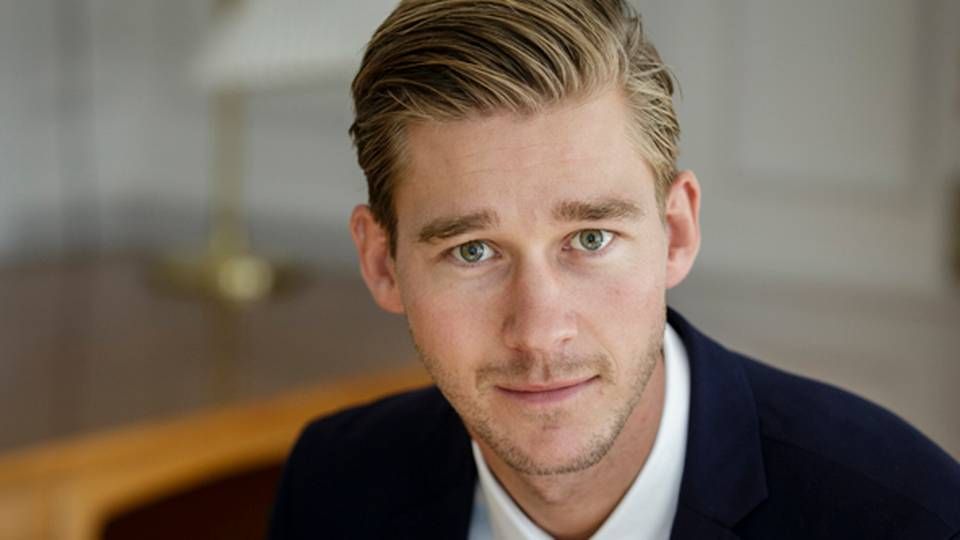Gudme Raaschou: The majority of our clients focus on ESG-standards

Gudme Raaschou, a Danish asset manager founded in 1925 which manages approximately 16 billion DKK, or about 2.1 billion EUR, has seen increasing demand for investments in line with ESG-criteria. Today the majority of Gudme Raaschou's clients have some kind of ESG-profile on their portfolios, the company tells FW Asset Management.
One of them is Dansk Journalistforbund – the union for Danish journalists. The union changed its money manager about a year and a half ago, for several reasons.
At the time the union was a client with Nordea Asset Management and Danske Capital. The union does not wish to reveal the size of their assets.
Nordea in particular has faced pressure, partly due to the much publicized cooperation with the Panama-based law firm Mossack Fonseca, which was exposed through the release of the “Panama-papers”.
A problem with hedge-funds in tax havens
”Our attention was brought to the fact that we were invested in hedge-funds with home addresses in tax havens at the Guernsey Islands. It wasn’t illegal what we were doing. But it didn’t look good. And hence we decided to get rid of all hedge-fund investments,” Lars Werge, chairman of the journalists’ union explains to FWAM.
Once the decision to get rid of hedge-funds was taken the board at Dansk Journalistforbund took a closer look at their asset managers in general, and decided it was time for a change. When it came to Nordea this decision was fueled by the coorperation with Mossack Fonseca. Gudme Raaschou and Sparinvest became the new asset managers.
”You are already trailing behind as an asset manager if you get bad press about governance issues or other ESG related areas,” explains Frederik Hansen, client executive at Gudme Raaschou.
He continues:
”Return is only a part of what investors are looking for. Another very important part is trust. It may sound trite, but it really matters a lot. And therefore we as asset managers also have to show that we have good governance structures in place”.
Hansen also points out, that for smaller asset managers it is vital not to get negative media exposure.
Investments must reflect own morality
When the journalists’ union began screening for new money managers, it was also obvious that it was important that the money was managed in a way that would be acceptable to the union’s members, and at the same time that costs as well as the goals between the union and the money mangers were acceptable and aligned.
”We are a union. In general we want the people we work with to have good governance structures in place. Our funds stem from our members, and it is important that the people we do business with live up to the criteria we are fighting for on behalf of our members,” union chairman Lars Werge says.
“Today the degree of transparency is very high, and it is extremely easy to spot an unacceptable investment,” Lars Werge points out.
However the sharpened ESG-focus did come at a cost for the union. The hedge-fund investments had delivered the best return in the portfolio over the previous years. Cutting out this generator of return has come at a cost, though the union cannot say exactly how much return they have missed out on.
It’s a jungle out there
Being a responsible investor can be quite difficult. The moral dilemmas are challenging and numerous. It is not always obvious what the right thing is. How are you to feel about weapons if the country you live in applies guns in the police force or in the military?
Hansen points to the many morally complicated issues faced by investors when trying to draw up an ESG-profile.
In general, we let the customers decide where they want to draw the line. But of course we offer input and try to help the clients reach a reasonable decision. Is it reasonable that a municipality that already owns a utility company says no to making an investment in say an oil company?,” asks Hansen.
At the journalists’ union the ESG-standards for the union’s investments are rather broad, and not set in stone.
“We haven’t been very specific and committed everything to paper. It’s very much a judgement call, which makes it both easy and hard,” chairman Lars Werge tells FWAM, and continuing:
“Also, we’re not yet finished discussing what the standards should look like. I don’t think we’ll reduce the criteria we’re looking at, but I feel that it’s also important that we don’t limit ourselves to a degree that makes it impossible to get a return. It’s money that belong to our members, and they haven’t necessarily committed those money for us to play the Messiah with them.”
Today, Gudme Raaschou by default places money from new clients in ECG-screened portfolios. However, clients can choose to include investments that are generally excluded, such as investments in oil companies or adult entertainment companies.
“We’re very flexible,” says Hansen.













